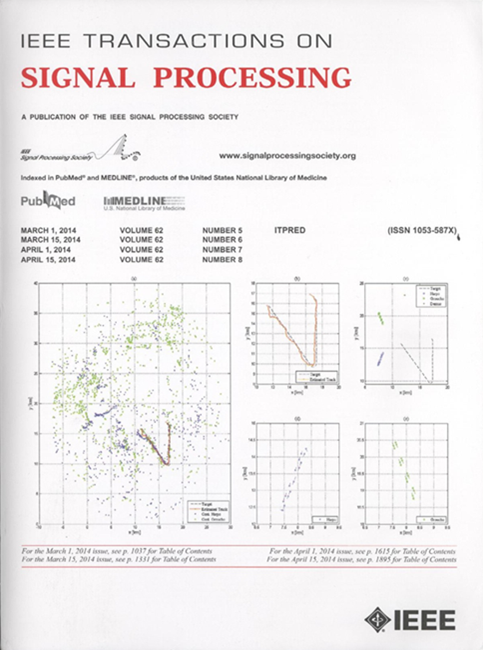无小区大规模MIMO的可扩展多元前传量化
IF 4.6
2区 工程技术
Q1 ENGINEERING, ELECTRICAL & ELECTRONIC
引用次数: 0
摘要
传统的无小区大规模MIMO系统前传设计方法遵循压缩预编码(CP)范式。因此,编码位和预编码系数由前传链路上的分布式单元(DU)共享,并在无线电单元(RUs)上进行预编码。先前的理论研究表明,通过预编码和压缩(PC)方法可以显著提高CP,其中所有基带处理都在DU进行,DU压缩预编码信号以在前传链路上传输。当DU实现多元量化(MQ)时,PC方法的理论性能增益特别明显,在所有ru的信号上应用联合量化。然而,MQ的现有解决方案的特点是计算复杂性随着从DU到所有ru的和前传容量呈指数增长。在这项工作中,我们首先提出了$\alpha$-parallel MQ ($\alpha$-PMQ),这是一种新颖的MQ方案,其量化复杂度在单个RUs的前传容量中呈指数级增长。$\alpha$-PMQ通过允许ru的并行局部量化步骤来调整MQ以适应网络的拓扑结构,这些步骤彼此之间不会干扰太多。当两种方案都可行时,可以看到$\alpha$-PMQ的性能接近确切的MQ。然后,我们引入了神经MQ,它用基于梯度的更新取代了MQ中的穷举搜索,用于基于神经网络的解码器,从而获得了量化复杂性,该复杂性随求和前传容量线性增长。这使得neural-MQ成为第一个真正可扩展的MQ策略。数值结果表明,在所有的前传容量范围内,神经mq都优于CP。本文章由计算机程序翻译,如有差异,请以英文原文为准。
Scalable Multivariate Fronthaul Quantization for Cell-Free Massive MIMO
The conventional approach to the fronthaul design for cell-free massive MIMO system follows the compress-and-precode (CP) paradigm. Accordingly, encoded bits and precoding coefficients are shared by the distributed unit (DU) on the fronthaul links, and precoding takes place at the radio units (RUs). Previous theoretical work has shown that CP can be potentially improved by a significant margin by precode-and-compress (PC) methods, in which all baseband processing is carried out at the DU, which compresses the precoded signals for transmission on the fronthaul links. The theoretical performance gain of PC methods are particularly pronounced when the DU implements multivariate quantization (MQ), applying joint quantization across the signals for all the RUs. However, existing solutions for MQ are characterized by a computational complexity that grows exponentially with the sum-fronthaul capacity from the DU to all RUs. In this work, we first present $\alpha$ $\alpha$ $\alpha$ $\alpha$
求助全文
通过发布文献求助,成功后即可免费获取论文全文。
去求助
来源期刊

IEEE Transactions on Signal Processing
工程技术-工程:电子与电气
CiteScore
11.20
自引率
9.30%
发文量
310
审稿时长
3.0 months
期刊介绍:
The IEEE Transactions on Signal Processing covers novel theory, algorithms, performance analyses and applications of techniques for the processing, understanding, learning, retrieval, mining, and extraction of information from signals. The term “signal” includes, among others, audio, video, speech, image, communication, geophysical, sonar, radar, medical and musical signals. Examples of topics of interest include, but are not limited to, information processing and the theory and application of filtering, coding, transmitting, estimating, detecting, analyzing, recognizing, synthesizing, recording, and reproducing signals.
 求助内容:
求助内容: 应助结果提醒方式:
应助结果提醒方式:


